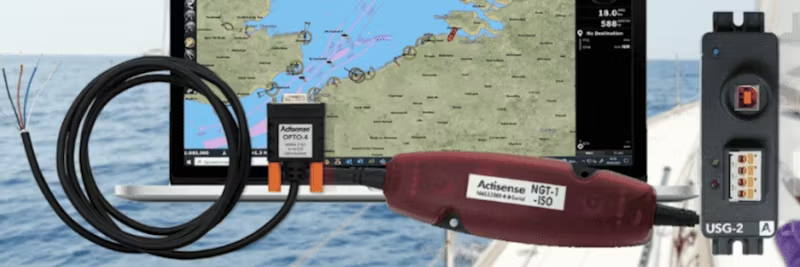Cart
Discount: 0.00 NOK
Discount: 0.00 NOK
Digital Skipper |29/06, 2023

When designing DC-powered products for marine networks, isolation must always be considered. Connecting NMEA devices directly to a computer without isolation is strongly discouraged. Without isolation, you risk ground loops that can damage both the NMEA device and the computer. Although some older standards allowed this, today's recommendation is clear: isolation is crucial for reliability and safety.
Isolation prevents two major problems in DC power systems: ground loops and ground potential differences. A ground loop occurs when multiple ground paths create different potentials, which can cause everything from data corruption to total device damage.
Galvanic isolation prevents current flow between circuits but allows data transfer via optical or electromagnetic methods. This protects against damage and ensures stable communication.
A small potential difference can cause random errors, while a larger one can stop communication entirely. Over time, this can lead to permanent damage to devices without isolation – something you don't want to experience in the middle of the sea!
Opto-isolators safely transfer data between isolated circuits using light. They consist of an LED that converts electrical energy into light and a photosensor that converts light back into electrical energy.
Always use isolated solutions such as Actisense USG-2, which has isolation on both input and output, as well as a USB connection for easy installation. An alternative is Actisense OPTO-4, which isolates the PC input.
Actisense NGX-1 is a gateway that transfers NMEA 2000 data to a PC. The USB version NGX-1-USB is popular for easy plug-and-play and full isolation against ground loops.
Isolation is not an option – it is a necessity for a safe and stable NMEA network. Do you need help choosing the right isolation solution? Contact us at Digital Skipper for advice and products that protect your equipment.